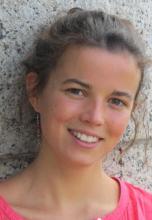
Pascaline Le Polain (1 May 2013-31 December 2014)

Justice and Coerced Labour in the Belgian Congo during World War Two (1940–1945). Supervision of the War Effort in the Territory of Libenge
This research was carried out from May 2013 to December 2014. Based on the analysis of judicial archives, the research analysed and discussed whether or not the Belgian judicial and administrative system in place in the colony helped the implementation of forced labour. It also studied the impact of that labour system on the colonised populations. The rural area in the territory of Libenge (Northwest Congo) served as a case in point. The analysis for this specific context informed about judicial practices, more specifically those of the Police court that has jurisdiction over those matters, and it allowed for studying the implementation of a forced labour system during the war. These issues were addressed as much as possible from the perspectives of both coloniser and colonised through the analysis of their mutual influences and interactions. The results will be published under the title ‘Dysfonctionnement ou compromis? La répression judiciaire et administrative des travaux agricoles imposés au Congo belge (1940-1945)’.
Pascaline le Polain is currently PhD researcher at the Université Saint-Louis on the topic of justice in the Belgian Congo. She extends her study to the actors and institutions which influenced the elaboration of a “colonial judicial knowledge” since 1908.
The Interuniversity Attraction Pole P7/22 "Justice & Populations: The Belgian Experience in International Perspective, 1795-2015" (BeJust 2.0) is part of the Interuniversity Attraction Poles Programme Phase VII (2012-2017), financed by the Belgian Science Policy Office of the Belgian State.
The IAP VII/22 Justice & Populations www.bejust.be is the outcome of a collaboration between the Cegesoma, the IAP coordination team (CHDJ-UCL) and the Royal Military Academy. Design: tangografix. Powered by Drupal
